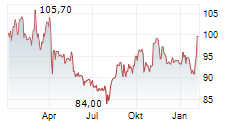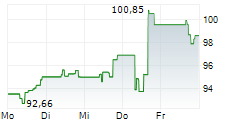
NEW YORK CITY, NY / ACCESS Newswire / January 22, 2025 / One of the first things a medical provider asks a new patient for is a detailed family health history. This includes many items, such as diseases and conditions that run in the family. Medical providers do this because it helps them understand the patient's risks of developing the conditions themselves. The provider can make better care decisions and potentially improve outcomes for the patient. However, patients can also benefit from knowing their family health history. This article covers four reasons to know one's family health history and a list of health history items each patient should know about themselves and their families.
Four reasons to know one's family health history
Here are a few reasons why one should know their family health history:
1. It helps with early detection and prevention
Medical providers ask for a detailed family health history because it helps gauge the risk of the patient developing certain conditions. It also helps the provider know what to look for. For instance, a patient may have a family history of skin cancer. This allows the provider to keep an eye out for any potential warning signs, such as new spots on the skin or a change in the size of an existing spot.1
2. It improves and personalizes healthcare
When providers know their patients' family health histories, they can tailor care to watch more closely for signs of that particular health problem and reduce the chance of issues developing. They can also address problems early if they are present but still minor. For example, a patient with a family health history of diabetes can lead the provider to want to check blood sugar and other potential signs of diabetes during regular checkups.2
Another example could be a history of breast cancer. The provider may recommend regular breast cancer screenings if the patient has a family history or a close relative with breast cancer.3
3. It informs lifestyle choices
Knowing one's family health history isn't just helpful for medical providers. Patients can also make more informed lifestyle choices that reduce the risk of health issues developing or worsening. For instance, someone with a history of hypertension can prioritize regular exercise, a healthy diet, weight management, and stress reduction to keep their blood pressure in a healthier range. This reduces the risk of hypertension-related health issues from developing.4
4. It helps people find the right insurance policies
Knowing one's health history helps one find traditional health insurance and supplementary policies that help cover any potential health issues they may need. For instance, someone may have a family history of cardiovascular disease. Their health insurance may cover some of the costs of a heart attack or other critical illness. However, it may not cover all the costs nor provide money to help replace income while recovering. They may ask, "what does critical illness insurance cover?" when researching their options. A critical illness plan pays a lump sum for heart attacks and other serious conditions, letting the policyholder use the funds as they see fit.
Family health history items to know
Generally, the more detailed of a history one gives their provider, the better. It helps the provider offer more personalized and thorough care to improve outcomes. Here are some items to know:
Major conditions and diseases: This can include heart disease, diabetes, cancer, dementia, blood clots, depression, and more.
Age of onset and diagnosis: These tell the provider the approximate age or year when the relative developed the condition and received a diagnosis.
Causes of death: If a family member with the condition passes away, let the medical provider know the cause of death.
Age at death: Inform the medical provider of the relative's approximate age of death.
Allergies and sensitivities: Inform the doctor of any family allergies or sensitivities to foods or medications.5
The bottom line
Knowing family health history is helpful for the patient and the provider. The provider can personalize care and know what warning signs to look for. Meanwhile, the patient can adjust their lifestyle to minimize the chance of the condition developing or help manage it if present. They can also find the right health and supplemental insurance policies to help cover relevant preventive care and procedures.
It's important to gather a detailed health history and keep it in a secure place. The patient can bring this to new and existing providers for every appointment, helping to tailor care to their needs.
Sources:
1 Cleveland Clinic - Skin Cancer. Updated November 19, 2021. https://my.clevelandclinic.org/health/diseases/15818-skin-cancer. Accessed December 12, 2024.
2 MedlinePlus - Diabetes Test. https://medlineplus.gov/lab-tests/diabetes-tests/. Accessed December 12, 2024.
3 BreastCancer.org - Family History of Breast Cancer. https://www.breastcancer.org/risk/risk-factors/family-history. Accessed December 12, 2024.
4 Heart.org - How to Manage High Blood Pressure. https://www.heart.org/en/health-topics/high-blood-pressure/changes-you-can-make-to-manage-high-blood-pressure. Accessed December 12, 2024.
5 Healthline - Family Health History: Why It's Important and What You Should Know. https://www.healthline.com/health/family-health-history-day. Accessed December 12, 2024.
Content within this article is provided for general informational purposes and is not provided as tax, legal, health, or financial advice for any person or for any specific situation. Employers, employees, and other individuals should contact their own advisers about their situations. For complete details, including availability and costs of Aflac insurance, please contact your local Aflac agent.?
This is a brief product overview only. Coverage may not be available in all states, including but not limited to ID, NJ, NM, NY, or VA. Benefits/premium rates may vary based on plan selected. Optional riders may be available at an additional cost. Plans and riders may also contain a waiting period. Refer to the exact plans and riders for benefit details, definitions, limitations and exclusions. For availability and costs, please contact your local Aflac agent/producer.
Aflac Policies
A73000 Series - In Delaware, Policies A73100DE & A7310HDE. In Idaho, Policies A73100ID & A7310HID. In Oklahoma, Policies A73100OK & A7310HOK. In Virginia, Policy A73100VA. B71000 Series- In Delaware, Policies B71100, B71200, B7130H & B7140H. In Oklahoma, Policies B71100OK & B7110HOK.
Coverage is underwritten by American Family Life Assurance Company of Columbus. In New York coverage is underwritten by American Family Life Assurance Company of New York.
Tier One Policies
In Arkansas, Policy T71100ARR. In Delaware, Policy T71000. In Oklahoma, Policy T71000OK. In Oregon, Policy T71000OR. In Virginia, Policy T71100VA.
Coverage is underwritten by Tier One Insurance Company. In California, Tier One Insurance Company does business as Tier One Life Insurance Company (Tier One NAIC 92908).
Aflac's family of insurers include Aflac, Aflac New York, Continental American Insurance Company, and Tier One Insurance Company.
Aflac WWHQ | Tier One Insurance Company | 1932 Wynnton Road | Columbus, GA 31999.
Z2401090 EXP 12/25
CONTACT:
Senior PR & Corporate Communications
Contact: Angie Blackmar, 706-392-2097 or ABlackmar2@aflac.com
SOURCE: Aflac
View the original press release on ACCESS Newswire



